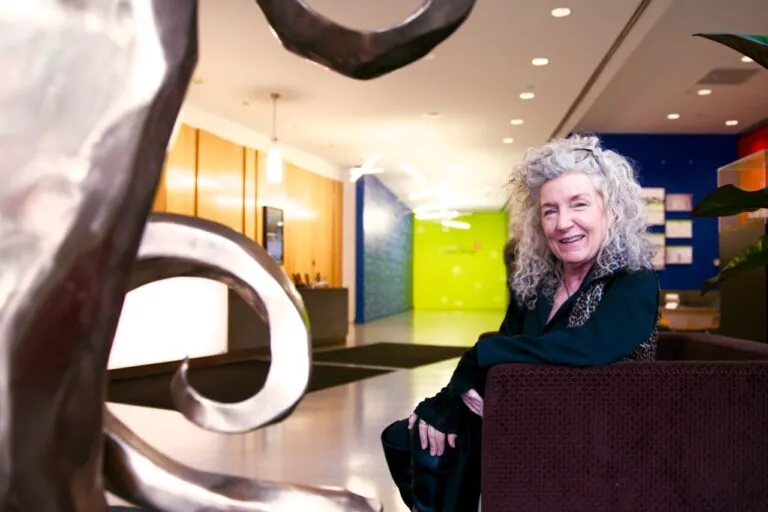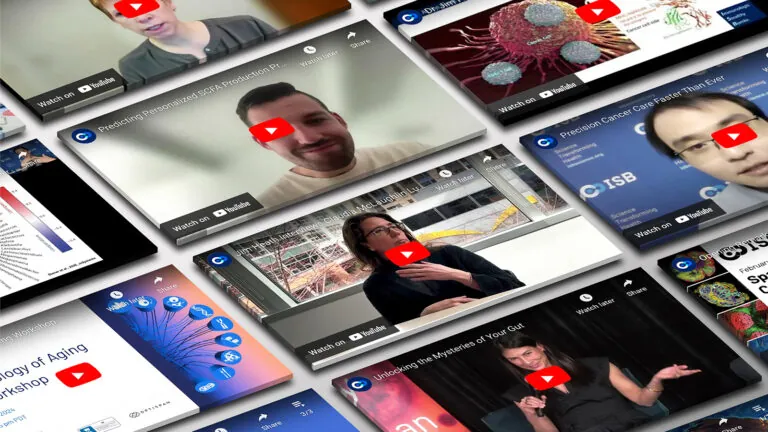
Scientists Decode Diet From Stool DNA – No Questions Asked
ISB’s Gibbons Lab developed a breakthrough method that analyzes food-derived DNA in fecal metagenomes, allowing for data-driven diet tracking without the need for burdensome questionnaires.
Filter
Sort

ISB’s Gibbons Lab developed a breakthrough method that analyzes food-derived DNA in fecal metagenomes, allowing for data-driven diet tracking without the need for burdensome questionnaires.

Carole Ellison has supported ISB’s research and STEM programs for over a decade. She established the K. Carole Ellison Fellowship in Bioinformatics, funding groundbreaking research that has enabled young scientists to make critical discoveries.

Scientists at the Institute for Systems Biology (ISB) reveal how T cells “decide” their fate in fighting infections like COVID-19, paving the way for improved treatments for infections, cancer, and autoimmune diseases.

We are deeply saddened to share the passing of renowned artist Ginny Ruffner earlier this year at 72. Ginny has long been an integral part of ISB’s community. Her vibrant artwork continues to bring life to our spaces, and her advocacy as a Foundation Board member leaves a lasting legacy.

ISB hosted a virtual event to share updates on the ongoing RECOVER study, a national NIH-funded initiative to understand and address Long COVID.

Reflecting on the past year, ISB has a lot to celebrate: groundbreaking research published in leading scientific journals, well-earned promotions, widespread media coverage, and more. Enjoy our year-in-review roundup highlighting some of the important, interesting, and impactful highlights of 2024.